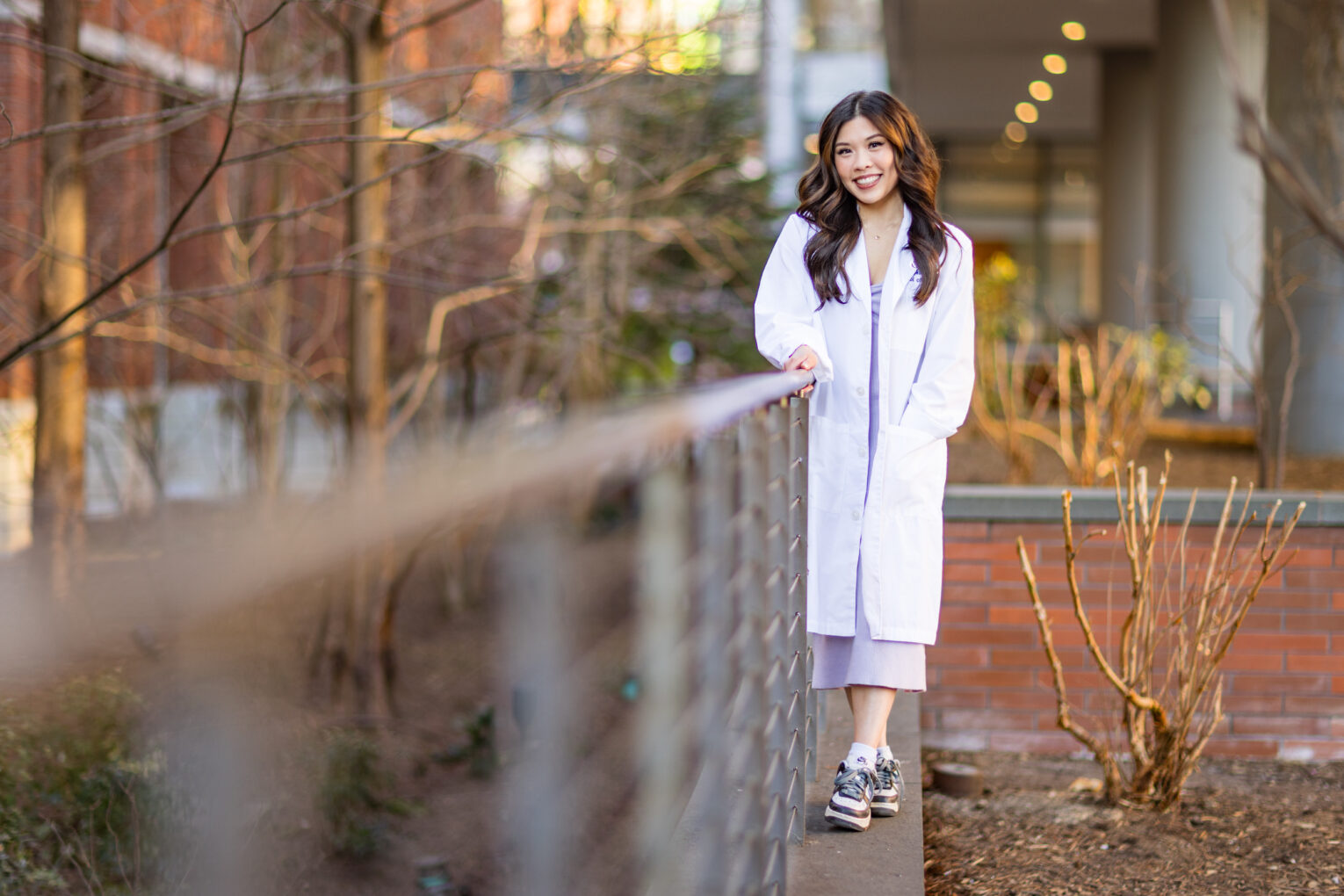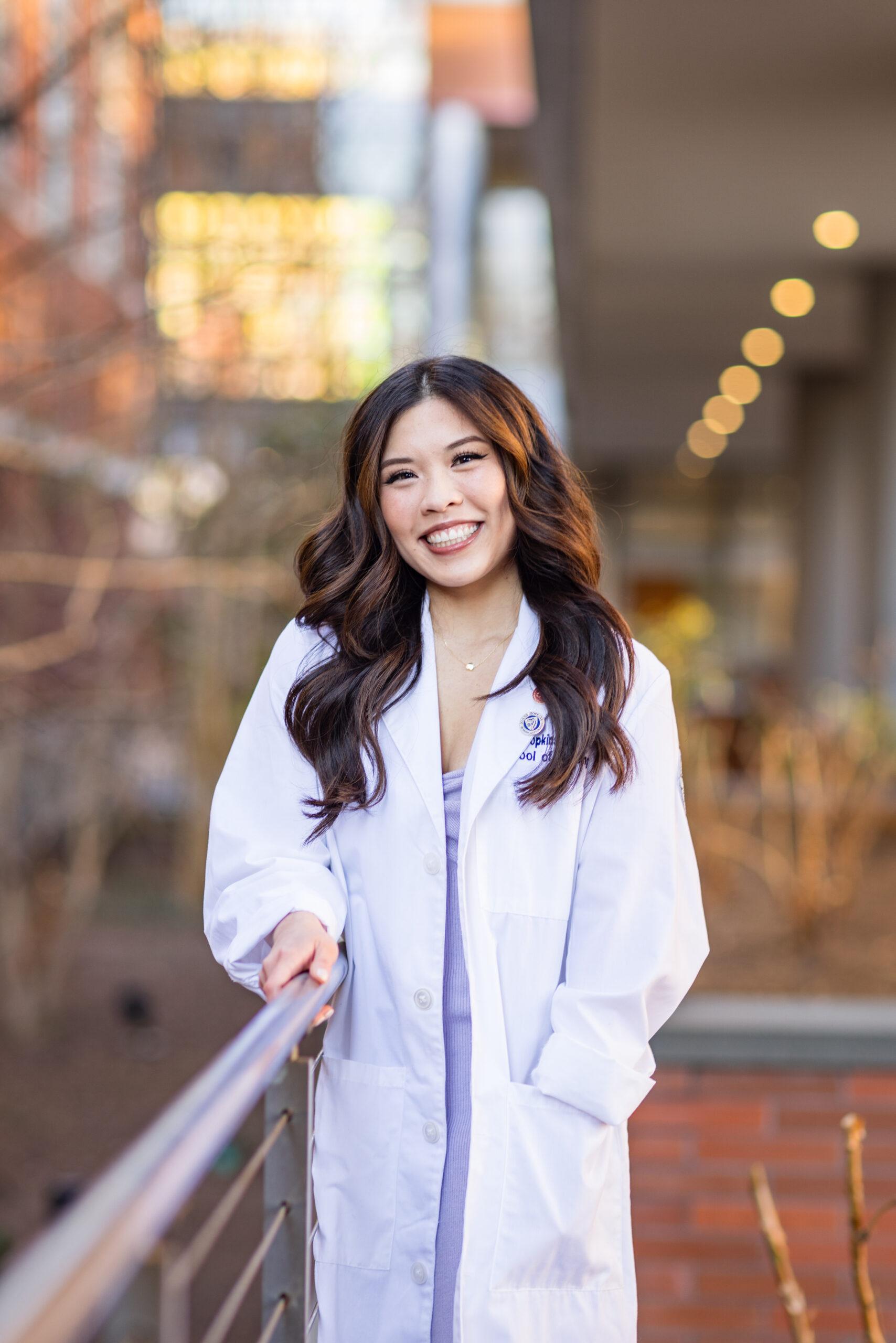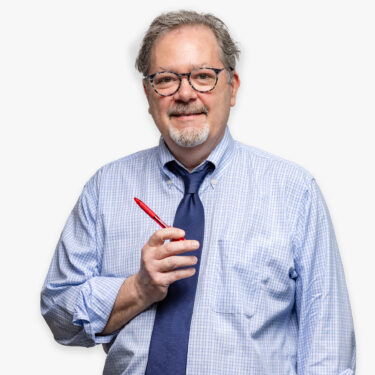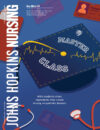Kara Suarez works to be a powerful voice for those in her care.
Kara Suarez was amazed. A six-plus hour bus ride from Accra, Ghana, in the hottest, most humid time of the year, at the hottest part of the day, across vast plains, past fields of mango trees, through tiny villages and one broken fan belt, along dense hillsides, and finally up a mountain, and she felt … invigorated.
Suarez, a member of the MSN (Entry into Nursing) program, had signed up for the trip through the Center for Global Initiatives (CGI), where she’s also an intern, with previous experience in such health missions, having been to Guatemala with a group from JHSON. She’d seen a tight band of nurse leaders and students provide excellent, holistic care in under-resourced areas before.
This was somehow another world altogether. Beneath a long, open-sided tent, a community was being seen, heard, treated, even healed, but on a scale that blew Suarez’s mind. The volunteer team of caregivers included MSN, PhD, and CRNA students, plus nurse practitioners, mental health and women’s health consultants, and midwives, as well as wound-care specialists. “I didn’t expect us to have such an interprofessional, collaborative health care team. I don’t know how Dr. [Yvonne] Commodore-Mensah did that, but she just created a powerhouse of a team to travel to this mountainous region.”
The gathering, organized by Commodore-Mensah, PhD, MHS, RN, FAAN, a Ghana native and JHSON professor, was a church-based community health fair in an extremely rural part of the Volta Region a long, long way from regular access to medical care. The contrast with the more cosmopolitan capital city
Accra could not have been more stark.

Suarez embraced every second, despite the unrelenting sweat and the sore backside from the bus ride. And coming on the heels of an admittedly challenging first year of nursing school, the Ghana trip turned out to be healing—and grounding—for Suarez too. “It was so emotional, and so restorative,” she says. “We were going to conferences, learning how to network with these university partnerships, learning the value of sustainability in health care as how we can really preserve a community, and learning the intersectionality in health care between countries.”
She uses an “it’s about the journey, not the destination” analogy to describe both the arduous route to the Volta Region and her path toward graduation from the JHSON master’s program: “It’s a beautiful process to be in, and it’s a privilege to be here.”
Support system
That appreciation is something Suarez is determined to keep up, having openly discussed her fears as well as her dreams with mentors (including Angela Chang Chiu, DNP, MS, RN, assistant professor and assistant director of student experiences for CGI). Suarez knows the statistics on burnout and staffing shortages, that demands of the U.S. health care system can leave nurses with “compassion fatigue,” and that people being cared for can walk away feeling they’ve somehow been an inconvenience. She’s witnessed that dynamic as a student nurse in a non-Johns Hopkins adult emergency department.
Caregivers “have our own agenda. We want to get through our to-do list,” she explains. It can be easy to forget Job 1 on that clipboard: “It’s OK you are here. That’s why we are here.” Once she’s gained a few years of experience in the emergency department, Suarez hopes to go on to a Doctor of Nursing Practice degree. Her planned focus, unsurprisingly: “Everything stems from patient advocacy.”
For today, The answer she keeps coming back to, for herself as well as those she serves and will serve, is “intentional, compassionate care” that includes improvement of her nonverbal as well as verbal communication skills. “Not just to serve the people in terms of health care but really bring their voice out to communicate what they need. … I’m going to get down with you at eye level. We’re going to have this conversation. And when I ask, ‘Do you have any questions?’ I’m here to answer. And they know that I mean that.”
“It’s a beautiful process to be in, and it’s a privilege to be here.”
When in doubt, on just about anything and everything on the health care spectrum, Suarez can lean on her folks back home in San Diego or extended family in the Cebu region of the Philippines, where Mom grew up and trained as a nurse. And where, as in the Volta Region of Ghana, “the closest hospital was going down a mountain.” (Dad’s a nurse too, of the U.S. military variety.) “Optometrists, psychiatrists … honestly, anything you can think of in health care, my family has probably done,” she jokes.
San Diego is a tough place to say goodbye to for too long. “There’s nothing that says it’s home more than my mom and my dad’s home-cooked Filipino food.” (Favorites: Chicken adobo and Filipino spaghetti.) And though Suarez hopes to one day provide care in a global capacity, she’ll cross that bridge later—for now, she’s simply preparing to cross the street to a post in the emergency department at Johns Hopkins Hospital that awaits after her graduation.
She’ll walk into the nursing profession with her eyes open. Just as importantly, her ears will be too. ◼


